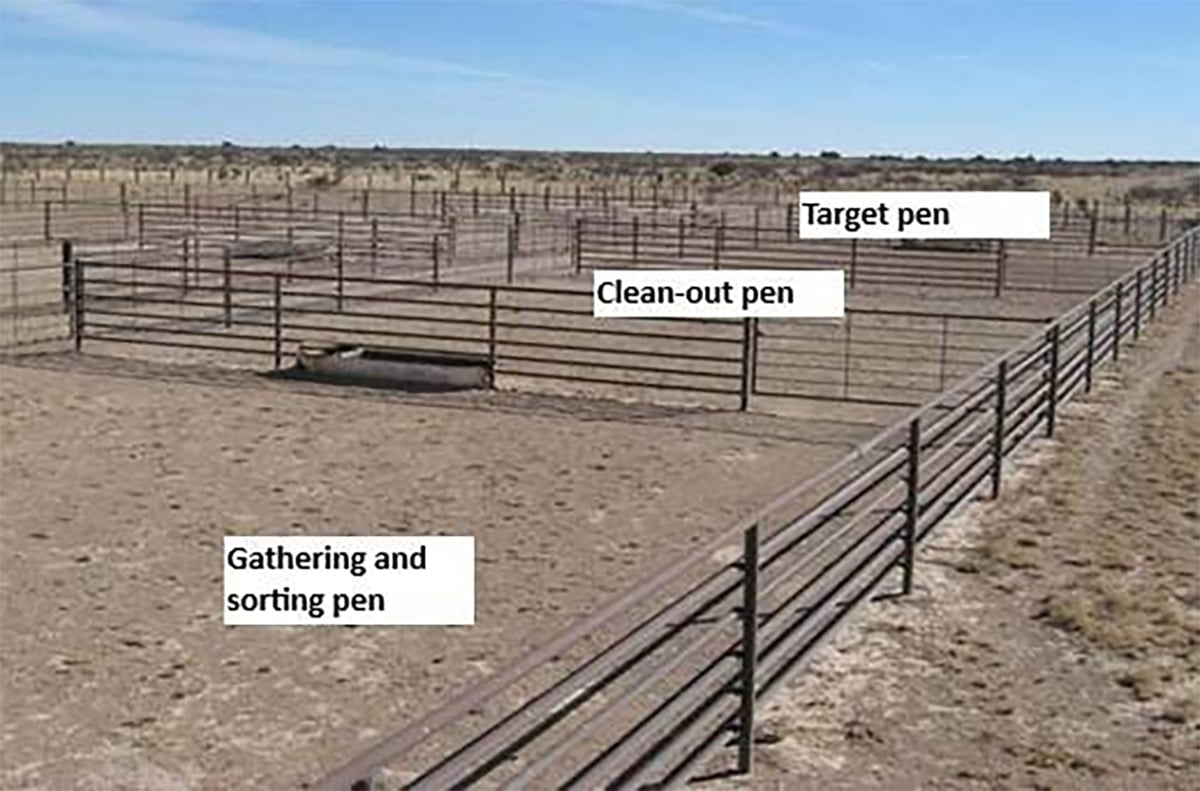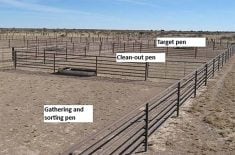MOOSE JAW, Sask. – Saskatchewan’s two main cattle organizations are looking at forming an umbrella lobby group to take the industry’s message to government.
The Saskatchewan Cattle Feeders’ Association (SCFA) and the Saskatchewan Stock Growers Association (SSGA) have agreed to investigate how a lobby could be structured to speak with one voice on behalf of the cow-calf, backgrounder and feeding sectors.
The move comes after the SCFA hired Framework Partners of Calgary to look at the future direction of Saskatchewan’s beef industry.
SCFA president Bill Jameson said the consultants recommended that there be just one cattle organization in the province.
Read Also

Teamwork and well-designed handling systems part of safely working cattle
When moving cattle, the safety of handlers, their team and their animals all boils down to three things: the cattle, the handling system and the behaviour of the team.
Another option was to keep the two existing larger organizations and establish an umbrella group that could access check-off funds.
Jameson said the two groups’ other joint venture, the Saskatchewan Beef Industry Committee, couldn’t access that type of money because of its structure.
The SCFA board has already approved the idea of a new lobby.
Members at the recent SSGA annual meeting heard a proposal on what the new group could look like.
Bob Ivey, an SCFA past-president from Ituna, said cattle producers could elect a director from each of the nine crop districts to ensure geographic representation. Eligible voters would be those who pay check-off levies.
As well, the SCFA and SSGA could each appoint two directors.
However, it was a little too early for stock grower members to agree on the details.
Rick Toney, a board member from Gull Lake, said more discussion was needed.
“I am in favour of working together as one voice and I am in favour of progressing,” he told the meeting.
“I don’t know if only having two stock growers members there is a positive thing that we want to do today because that takes a lot of power and influence away from our stock grower group.”
Calvin Knoss of Rockglen said trying to please everyone softens the message.
However, Jameson urged members to think about the issues that affect the entire industry and why one voice could address them: specified risk materials, traceability; supplemental beef imports; country-of-origin labelling; Rule 2; transportation regulations; mandatory age verification; continually changing farm support programs; pharmaceutical import problems; biodiesel as it pertains to feed issues and voluntary BSE testing.
“We’ve got the very viability of our Canadian packing industry at stake here,” he said.
“So, OK, maybe we’re trying to soften the blow but I can tell you one thing right now. We better get on the same page and we better get on the same page real quick.”
Murray McGillivray, a former stock grower president from Radville, said cow-calf producers must seize the opportunity.
“It’ll take some negotiation. It’ll take some common sense. But it’s certainly workable and it’s doable and it’s a necessity to do it and time is of the essence,” he said.
Jameson noted that the SSGA is one of the oldest cattle groups in Canada and members don’t want to lose that historical identity.
He said by taking the initiative on a new organization the cattle feeders are not trying to take over the stock growers. Instead, they want to reduce the inefficiencies that come from two groups lobbying on identical issues, he said.
The stock growers did not establish a deadline for passing a resolution to participate in a task force that would investigate and develop options for a single industry voice.















